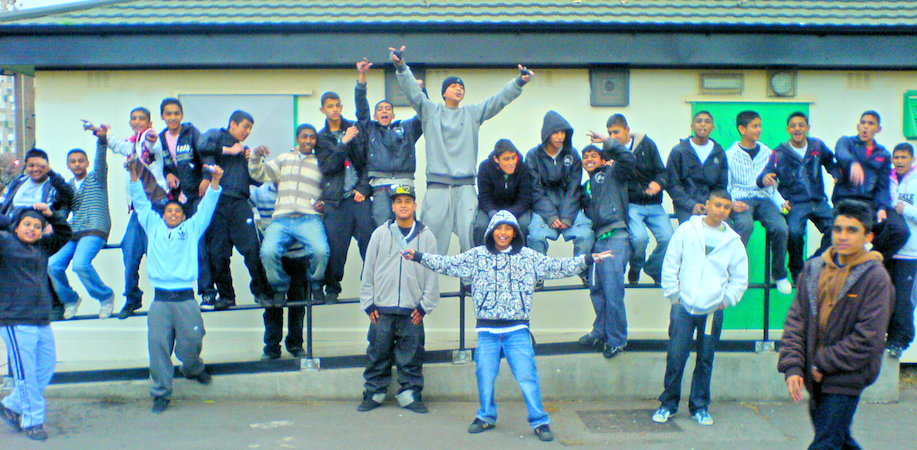There is an epidemic of youth violence in our cities.
Last week gang related youth violence escalated again in the Chad Brown housing project in Providence, Rhode Island, just as it has in Chicago and many other cities across the nation this summer.
Dwayne “Boo” Hackney, a Providence barbershop owner and long time community leader in the local anti-violence movement, shared this with reporters (GOLOCAL Prov.com, reporter Kate Nagle):
“What’s fueling the violence is a lack of knowledge of self. If we don’t know who we are, we can’t see another for who they are. We’ve been indoctrinated about how important self-esteem is, but not on what self-worth is,” Hackney continued. “When things are good, when you drive a nice clean car, that’s self-esteem. But when that goes—self-worth keeps you away from doing those things to get that car back, doing something unlawful. And that’s what we’re trying to teach our kids.”
Mr. Hackney offers an important distinction between self-worth and self-esteem, perhaps a critical one for the future of our kids, our communities and our society.
Author and psychologist, Dr. Christina Hibbert, on her popular blog, The Psychologist, the Mom & Me, offers this distinction between these often confused concepts:
“Self-esteem is what we think and feel and believe about ourselves. Self-worth is recognizing, “I am greater than all of those things.” It is a deep knowing that I am of value, that I am lovable, necessary to this life, and of incomprehensible worth. It is possible to feel “high self-esteem,” or in other words, to think I’m good at something, yet still not feel convinced that I am lovable and worthy. Self-esteem doesn’t last or “work” without self-worth. That’s why I believe the pursuit of self-esteem is a myth.”
These two concepts may overlap to a degree and different writers and clinicians may use them differently or even interchangeably, so let’s see what the dictionary has to say:
Miriam Webster Online Definitions:
Self-Esteem: a feeling of having respect for yourself and your abilities
Self-worth: a feeling that you are a good person who deserves to be treated with respect
There appears to be a fairly consistent distinction between being and doing, with self-worth more a question of being and self-esteem one of doing, and between the unconditional or inherent nature of self-worth and the conditional and indeed ephemeral nature of self-esteem.
In his book, Shambhala: Sacred Path of the Warrior, renowned Tibetan meditation master, Chogyam Trungpa Rinpoche, placed the idea of basic goodness at the very core of his teaching, defining it as the primordially pure, unconditional, innate goodness possessed by all beings.
The idea of unconditional basic goodness is more fundamental than relative notions of good and bad, which of course have to do with doing; whereas basic goodness, once again, is a function of being or in the Shambhala teachings, the very ground of being.
Clearly there is nothing inherently wrong with self-esteem or with feeling good about ourselves and confident in our abilities. The important question appears to be, “What underlies our self-esteem?” When paired with a genuine confidence in our unconditional self-worth, reasonably high self-esteem would appear to be a healthy and useful trait allowing us to achieve, accomplish and contribute. However, when self-esteem is layered over a lack of self-worth, it is more likely to manifest as pridefulness, egoism and more superficial strategies for feeling okay about ourselves.
We all need to feel good about ourselves, and when the outer circumstances of our lives fail us, having a genuine sense of unconditional self-worth is all the more critical to our well being and even our survival. It is quite natural for us to build some part of our sense of self and our self-confidence in life on what we are good at doing and on the perceived or rewarded value of our doing. Nonetheless, it is our underlying sense of unconditional self-worth that will carry the day when we face the inevitable challenges and dark moments in life.
Our children, growing up in perhaps the most materialistic, winner take all society we have yet seen, have a greater need than ever for a strong foundation of unconditional self-worth. How badly are we failing our children… allowing more and more kids to grow up in unstable, under-resourced homes and communities and valuing materialistic achievement and winning over good parenting, good schools, and dare I say…being?
Love elephant and want to go steady?
Sign up for our (curated) daily and weekly newsletters!
Editor: Travis May
Photo: Wiki Commons











Read 1 comment and reply